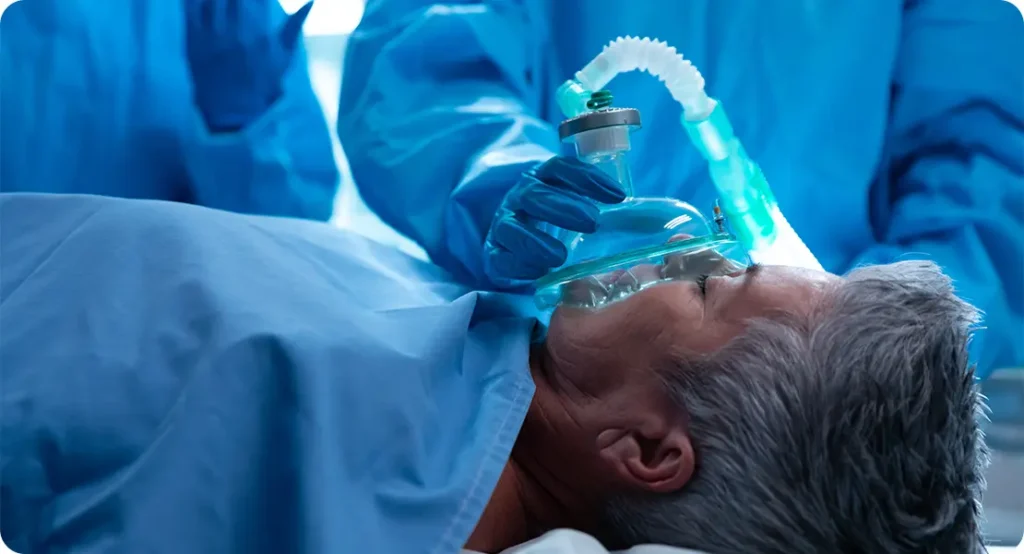If you’re living with chronic kidney disease (CKD) or undergoing dialysis, you already know your health requires careful management. But what happens when cataracts start clouding your vision? Cataract surgery is one of the most common procedures worldwide, and it’s highly effective—but for patients like you, the situation can be more complex.
Let’s walk through exactly what you need to know. From how kidney disease affects your eyes, to what special precautions your surgeon should take, we’ll unpack it all in plain, patient-friendly language.
How Chronic Kidney Disease Can Affect Your Eyes
CKD doesn’t just impact your kidneys—it can also take a toll on your eyes. The longer you’ve had kidney problems, the more likely you are to see changes in your vision.
- Microvascular Damage and Cataract Formation
Chronic kidney disease causes widespread changes in the body’s small blood vessels. Just like in diabetic retinopathy, the tiny vessels in the retina and lens can become compromised. This can result in more rapid cataract development compared to the general population. Oxidative stress, systemic inflammation, and elevated urea levels may all contribute to faster lens opacification. - The Role of Secondary Hyperparathyroidism
People with advanced CKD often develop secondary hyperparathyroidism due to imbalanced calcium and phosphate levels. Elevated calcium-phosphate product can lead to calcific deposits, not just in blood vessels, but also in the eye’s lens capsule, increasing cataract risk. - Medications and Their Ocular Side Effects
Some medications used to manage kidney disease—such as long-term corticosteroids—are also linked to posterior subcapsular cataracts. Others may alter intraocular pressure or tear production. If you’re taking immunosuppressants after a transplant, for instance, your risk profile shifts again.
Is Cataract Surgery Safe for People with CKD or on Dialysis?
The short answer: yes, but with extra planning. Cataract surgery is not contraindicated in CKD or dialysis patients, but certain aspects need more attention than they would in someone without kidney problems.
Key Risks and Why They Matter
- Fluid overload: Dialysis patients can’t excrete fluid normally. Even small amounts of intravenous fluids during surgery could disrupt their delicate fluid balance.
- Bleeding tendencies: CKD affects platelet function and increases the risk of bleeding during or after surgery.
- Cardiovascular instability: Patients with advanced CKD often have comorbid heart disease, requiring careful perioperative monitoring.
- Increased infection risk: Immunosuppression (whether due to disease or post-transplant medication) makes patients more vulnerable.
These risks don’t mean surgery is unsafe—but they do mean your care team needs to be very meticulous in how they plan the operation.
Tailoring the Anaesthetic Plan: What’s Different?
Anaesthesia is one of the most crucial considerations in cataract surgery for renal patients. While many patients without CKD have their surgery under local anaesthesia with minimal monitoring, the approach is often different in your case.
Topical vs Regional vs General Anaesthesia

- Topical anaesthesia is preferred in many cases to avoid systemic effects, as it avoids needles and reduces the risk of bleeding.
- Sub-Tenon or peribulbar blocks may still be used but with careful technique to avoid haematoma or prolonged bleeding.
- General anaesthesia is rare for cataract surgery, but in uncooperative patients (especially those with cognitive impairment or severe tremors), it may be necessary. However, general anaesthesia must be tailored to the renal status, as certain agents may accumulate or cause hypotension.
Medication Adjustments
Patients with CKD often have delayed drug clearance. This means standard sedatives or anaesthetics may last longer or have more pronounced effects. Anaesthetists must adjust doses accordingly. Opioids, benzodiazepines, and even some antiemetics may require renal-adjusted dosing.
Managing Bleeding Risk in the Operating Theatre
A major concern in patients with advanced renal insufficiency is bleeding. CKD alters platelet adhesion and aggregation, leading to a mild but significant bleeding tendency.
Uraemic Platelet Dysfunction
In patients with high urea levels, platelet function is impaired. This doesn’t usually cause life-threatening haemorrhage, but it can lead to longer oozing times during surgery. For a small, highly vascularised area like the eye, even minor bleeding can affect surgical visibility.
Dialysis Timing and Anticoagulants
Heparin is often used during dialysis to prevent clotting in the circuit. Surgeons and anaesthetists will usually recommend scheduling your cataract surgery at least 24 hours after dialysis, when the heparin effect has worn off. If you’re on long-term anticoagulation (e.g. warfarin or DOACs), this needs to be reviewed and possibly paused, based on your cardiovascular risk.
Fluid Balance: One of the Most Critical Elements
Maintaining the right fluid balance during cataract surgery might seem minor—but for dialysis patients, it’s one of the most important factors.
Avoiding Fluid Overload
Even a 250ml IV saline drip can tip the scales for someone who hasn’t urinated in months due to end-stage kidney disease. Surgeons and anaesthetists must communicate with your nephrology team to decide whether you should have dialysis before or after the procedure, and how to manage any intraoperative fluids.
Intraocular Pressure and Volume Management
While cataract surgery is done in a closed chamber using balanced salt solution, there’s still potential for systemic fluid absorption. Thankfully, this is minimal, but careful intraoperative monitoring ensures that no unexpected pressure or fluid shifts occur.
Infection Control in Immunosuppressed Patients
If you’ve had a kidney transplant or are immunosuppressed for another reason, the risks of postoperative infection—while still low—are higher than in healthy patients.
Prophylactic Antibiotics and Aseptic Technique
All patients undergoing cataract surgery receive antibiotic drops, but in immunosuppressed individuals, the stakes are higher. Some surgeons may consider subconjunctival antibiotics at the end of the case, and may keep you on postoperative antibiotics for slightly longer.
Monitoring for Endophthalmitis
Endophthalmitis is a rare but severe infection that can cause permanent vision loss. You’ll need to keep a close eye on any signs of pain, redness, or discharge and report these immediately to your eye team.
Will Cataract Surgery Outcomes Be Different for You?

The good news is that cataract surgery in CKD or dialysis patients can be just as successful as in others—provided the proper precautions are taken.
Visual Outcomes
Studies have shown that with appropriate planning, most patients with CKD achieve excellent vision after cataract surgery. However, if you also have diabetic eye disease or hypertensive retinopathy, your final vision may depend more on the retina than on the lens.
Healing and Recovery
Wound healing might be slightly slower in CKD patients, particularly those on long-term steroids or with diabetes. Still, with close follow-up, this rarely leads to complications.
Preoperative Workup: What You Should Expect
Before you’re scheduled for surgery, your surgeon will want to know a few key things about your kidney status.
Key Investigations
- Serum creatinine and eGFR: Helps estimate how your kidneys are functioning.
- Electrolytes: Imbalances in potassium, calcium or phosphate may need correction before surgery.
- Coagulation profile: Especially important if you’re prone to bleeding or are on anticoagulants.
- Cardiology clearance: If you have significant cardiovascular disease, a pre-op cardiac review may be needed.
Multidisciplinary Coordination
You’ll benefit from your eye surgeon working closely with your nephrologist, dialysis team, and anaesthetist. This team-based approach ensures your eye surgery won’t jeopardise your renal status—or vice versa.
Postoperative Care: Adjustments for Renal Patients
Once the surgery is done, recovery looks a little different when you’re managing CKD or dialysis at the same time.
Follow-up Frequency
You might need more frequent follow-up visits—especially if you’re at higher risk of infection, wound healing issues, or intraocular pressure spikes.
Medication Considerations
Standard post-cataract eye drops often include steroids, antibiotics, and NSAIDs. In rare cases, these can be absorbed systemically and may interact with your other medications, particularly immunosuppressants. Your doctor might adjust the dose or choose an alternative formulation.
Frequently Asked Questions (FAQs)
- Can I have cataract surgery on a dialysis day?
It’s usually best to avoid having cataract surgery on the same day as your dialysis session. Dialysis can affect your blood pressure, fluid balance, and the level of anticoagulants in your blood. Most surgeons prefer to schedule the procedure either the day after dialysis (when you’re stable and off heparin) or at least several hours apart, with careful coordination between your nephrologist and the surgical team. - Will I need to stop any medications before surgery?
Possibly, yes. If you’re on blood thinners like warfarin or DOACs, your surgical team may temporarily pause them to reduce bleeding risk—provided it’s safe to do so. If you’re taking immunosuppressants post-transplant, they are generally continued, but doses may be adjusted in coordination with your renal consultant. Always bring an up-to-date medication list to your pre-assessment visit. - Does kidney disease increase my risk of complications from cataract surgery?
It does, but mostly in ways that can be managed. You might be at slightly higher risk of infection, bleeding, or delayed healing. However, with the right precautions—including close monitoring and specialist input—these risks can be significantly reduced. Most patients with CKD do very well after cataract surgery. - Will the surgery take longer because of my condition?
Not necessarily. The actual surgical procedure is typically the same, but extra time may be spent on preoperative preparation and postoperative monitoring. If anaesthetic techniques need to be adjusted or additional team members are involved (e.g. an anaesthetist for sedation), this might extend your time in the theatre slightly. - Can kidney problems affect the success of my cataract surgery?
Only indirectly. Kidney disease doesn’t usually affect the eye structures involved in cataract surgery. But if you also have diabetic or hypertensive retinopathy, that may limit your final visual outcome. Additionally, delayed healing or post-op inflammation can slightly affect recovery—but these are often preventable with proper planning. - What should I tell my eye surgeon before surgery?
You should inform them about your dialysis schedule, transplant history (if applicable), current medications (especially blood thinners or immunosuppressants), and any history of bleeding problems. Also mention if you’ve had previous eye surgery or any infections, as this can influence your treatment plan. - Are there any alternatives to cataract surgery for kidney patients?
If the cataract is significantly impairing your vision, surgery is the only effective treatment. No eye drops, diet, or glasses can reverse a cataract. The decision is not whether to treat it—but rather how to do it safely. That’s why multidisciplinary planning is so essential for patients with CKD or on dialysis. - Will I need to adjust my dialysis schedule before or after cataract surgery?
Yes, it’s very likely. Your nephrologist and ophthalmologist will usually recommend that you undergo dialysis the day before surgery to optimise fluid balance and reduce any excess urea that could impair healing or anaesthesia response. After surgery, the timing of your next dialysis session may be modified to ensure post-op care (like administering eye drops or monitoring vision) isn’t interrupted. Coordination between your teams is key. - Is it safe to lie flat during surgery if I have heart or fluid issues from kidney disease?
That depends on your individual health. Some dialysis patients or those with heart failure may find lying completely flat uncomfortable or risky due to shortness of breath or fluid overload. Your surgical team can adjust the operating table position slightly to improve comfort and respiratory function. If needed, mild sedation can help you remain calm without affecting your breathing. - What if I’m taking phosphate binders or erythropoietin—do these affect the surgery?
Phosphate binders don’t interfere with cataract surgery itself, but your calcium-phosphate balance might influence eye health over time. Erythropoietin (EPO) use, common in anaemia from CKD, doesn’t directly impact the eye but can affect your haemoglobin levels and surgical risk. Be sure to disclose all medications at your pre-op assessment so the anaesthetist can plan accordingly. - Can cataract surgery help improve my quality of life if I’m on long-term dialysis?
Absolutely. Many dialysis patients report improved independence, mobility, and mood after cataract surgery. Restoring vision can help you better manage medications, attend appointments safely, and maintain social connections. Although managing cataracts in kidney patients requires a bit more care, the potential quality-of-life benefits are well worth it for most people.
Final Thoughts: Should You Proceed with Cataract Surgery?
Yes—most of the time, the benefits far outweigh the risks. You deserve clear vision just as much as anyone else, and cataract surgery is generally safe when done with proper planning. The key is transparency with your care team and being clear about your kidney condition at every stage of the process.
At the London Cataract Centre, we work with patients who have complex health conditions—including those on dialysis or post-transplant care. Our team is used to coordinating across specialties to make sure your cataract surgery is not only safe but also optimised for the best possible outcome. If you’re managing CKD and considering cataract surgery, you’re not alone—and you’re in capable hands.
References
- National Kidney Foundation. (n.d.). Kidney Disease, Dialysis, and Your Eyes. Available at: https://www.kidney.org/news-stories/kidney-disease-dialysis-and-your-eyes (Accessed: 19 June 2025). (pmc.ncbi.nlm.nih.gov, kidney.org)
- British National Formulary (BNF) – NICE. (2025). Prescribing in renal impairment.
- Wang, X. et al. (2022). Chronic kidney disease and its association with cataracts – a cross‑sectional and longitudinal study. Frontiers in Public Health. Available at: https://www.ncbi.nlm.nih.gov/pmc/articles/PMC9771793/ (Accessed: 19 June 2025). (pmc.ncbi.nlm.nih.gov)
- Rao, S. et al. (2023). Cataract surgery and chronic kidney disease: a hospital‑based analysis. Investigative Ophthalmology & Visual Science. Available at: https://www.ncbi.nlm.nih.gov/pmc/articles/PMC11116011/ (Accessed: 19 June 2025). (pmc.ncbi.nlm.nih.gov)
- Ghosh, M. (2021). The eye–kidney connection: links between renal and ocular disease. Review of Optometry. Available at: https://www.reviewofoptometry.com/article/the-eye-kidney-connection (Accessed: 19 June 2025). (reviewofoptometry.com)

